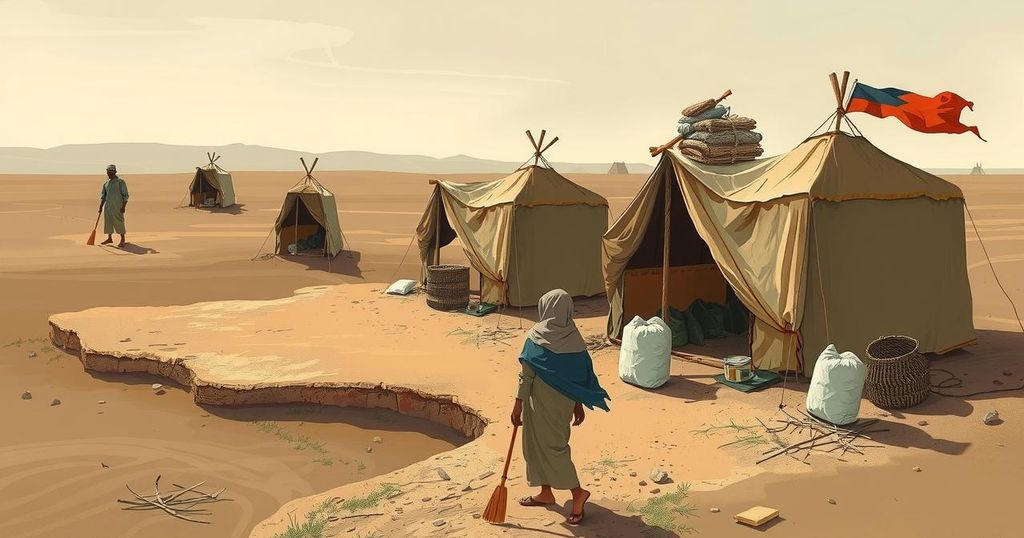UNHCR Funding Cuts Endanger Sudanese Refugees’ Lives in Egypt
UNHCR has suspended essential services for Sudanese refugees in Egypt due to severe funding cuts, leaving tens of thousands without critical medical care and support. This situation affects 20,000 patients requiring vital treatments, escalating the humanitarian crisis created by the conflict in Sudan.
The UN Refugee Agency (UNHCR) has been compelled to suspend essential support services for Sudanese refugees in Egypt due to a global humanitarian funding crisis. This unfortunate development impacts tens of thousands, particularly those who have fled the conflict in Sudan, who are now left without critical medical care, child protection services, and other necessary aid.
Funding shortfalls have resulted in the cessation of all non-emergency medical services, affecting around 20,000 vulnerable patients who require important treatments such as cancer surgeries, chemotherapy, heart procedures, and medications for chronic conditions like diabetes and hypertension. This is particularly dire for the Sudanese refugees, who represent over 1.5 million individuals that Egypt has welcomed amidst this escalating humanitarian crisis.
Among those affected is 54-year-old Abdelazim Mohamed, who fled Sudan due to his serious heart condition. He shared his fears regarding the loss of medical support, emphasizing that “staying in Sudan with my condition would be suicide.” Many refugees, like Abdelazim, had to leave Sudan because they could not access medical care as the health system collapsed amidst the conflict.
Despite having gained access to Egypt’s national healthcare system, refugees often find it unaffordable. Jakob Arhem, a UNHCR Public Health Officer, noted the devastating consequences of suspending aid. “Many of them will not be able to find the means to pay for health care themselves and they will get sicker, weaker and many will die,” he stated, highlighting the challenging predicament faced by humanitarian workers when forced to eliminate life-saving activities.
Abdelazim and his wife currently reside in a modest apartment in Cairo after leaving their stable lives behind. He has received medical attention through UNHCR’s partner services but now faces uncertainty. “I fought so hard to survive, but now, I don’t know if I’ll make it,” he lamented, casting doubt on his future without ongoing medication.
Funding deficiencies have severely hampered UNHCR’s ability to assist over 939,000 registered refugees in Egypt. The current prioritization centers on critical life-saving services for the most vulnerable groups, yet ongoing funding reductions threaten even these essential programs. Cases such as a young Sudanese man receiving care for his disabilities exemplify the dire consequences of funding cuts.
UNHCR is calling for urgent financial assistance from all sectors, emphasizing the growing needs of refugees. Marti Romero, Deputy Representative at UNHCR Egypt, underscored the importance of immediate support, stating, “Without immediate international action, both refugees and host communities will face even greater hardship.” Millions at risk of losing essential aid underscore the necessity for donors to increase their support.
In summary, the funding cuts faced by UNHCR critically endanger the lives of Sudanese refugees in Egypt. Vital medical and support services have been suspended, affecting thousands who are already in dire situations. Urgent action is required to restore funding and provide necessary assistance to these vulnerable populations. Without immediate intervention, the consequences could be catastrophic for both refugees and host communities alike.
Original Source: www.unhcr.org




Post Comment